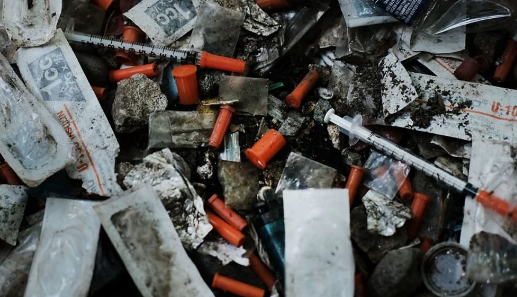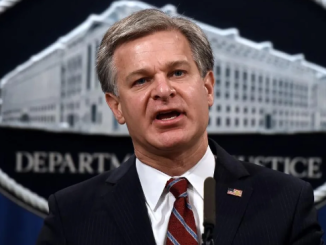
A Canadian judge ruled Friday that junkies cannot be prevented from shooting up in playgrounds and in other children’s areas.
According to Chief Justice Christopher Hinkson of the British Columbia Supreme Court, forbidding junkies to do so would impose “irreparable” harm. After all, reasoned the judge, “public consumption and consuming drugs in the company of others is oftentimes the safest” — apparently even if the company sought is that of strangers’ children.
What’s the background?
The Trudeau government decriminalized hard drugs in British Columbia last year in concert with the province’s socialist NDP regime as part of a pilot program set to run until 2026. The program provides junkies in the province — 2,300 of whom overdosed in 2021 — with an exemption from federal law to possess up to 2.5 grams of various illicit substances including fentanyl, heroin, cocaine, meth, and ecstasy.
Of course, this initiative immediately proved problematic for all the obvious reasons.
{snip}
The “areas of concern” were largely those frequented by children.
B.C.’s socialist premier, David Eby, also acknowledged there had been significant concerns that decriminalization had led to a spike in the use of illicit drugs in schoolyards, reported North Shore News.
The province ultimately pressed the federal government for an amendment to the decriminalization policy to ensure that junkies couldn’t abuse their newfound liberty within 49 feet of playgrounds, spray pools, wading pools, and skate parks. B.C. indicated in September that it had received approval to allow police to enforce federal drug law in “child-focused spaces.”
“We requested this amendment from Health Canada to ensure that families feel safe in their community while continuing to use every tool available to fight the toxic-drug crisis and save lives,” said Jennifer Whiteside, B.C’s NDP minister of mental health and addictions.
The resultant provincial legislation, Bill 34, would enable police to tell junkies to stop consuming an illegal substance or to relocate to another place. Noncompliance could be punished with a maximum fine of $2,000 and/or a prison term of up to six months.
Protecting playground junkies
Activists figured that that notwithstanding the roughly 364,764 square miles whereupon junkies could shoot up in B.C., it was essential that the province’s playgrounds in particular remained for them a viable option.
The Harm Reduction Nurses Association challenged Bill 34 in November, alleging it violated sections of the Canadian Charter of Rights and Freedoms, including the “rights of People Who Use Drugs (‘PWUD’), the … rights of the plaintiff and its members, and the … rights of Indigenous people.”
{snip}
Caitlin Shane, a lawyer for the Harm Reduction Nurses Association, told the Tyee, “The vast majority of communities in B.C. don’t have places to safely use drugs, and when you ban people from using in public when you know there is nowhere else for them to go further pushes people into the margins and towards isolated drug use.”
Corey Ranger, head of the HRNA, said Bill 34 was a “reactive, regressive, not evidence-based, not based in harm reduction” law that “poses immense amounts of harm for those already at higher risk of death.”
The HRNA activists, like Shane, appear to presume it a forgone conclusion that society must accept that junkies need to continue using.
Court keeps crack on the jungle gym
Chief Justice Christopher Hinkson, appointed to his role by former Prime Minister Stephen Harper, acknowledged in his Dec. 29 ruling that “the social harms associated with public illegal drug use range from the loss of public space due to open drug use, to discarded needles and other drug paraphernalia, to drug-related criminal activity and decreases in real and perceived public safety.”
Hinskson also indicated that he accepted “that the attendant public safety risks are particularly concerning given that many of the restricted areas and places in the Act are frequented by seniors, people with disabilities, and families with young children.”
Despite noting these downsides and the government’s indication that the HRNA’s “evidence [was] composed almost entirely of affidavits prepared by administrators of public interest groups that are replete with anecdotal evidence, unsubstantiated conclusory statements, layers of unattributed hearsay, … and policy recommendations,” Hinskon nevertheless concluded both that the legislation “will cause irreparable harm” and that its suspension “can be properly characterized as a substantial public benefit.”
It appears Hinkson was swayed in part by the argument that shooting up in the company of others, in this case in front of families and children, “is oftentimes the safest, healthiest, and/or only available option for an individual.”
{snip}
The court indicated the province can pursue other legislative and policy alternatives should Bill 34 ultimately be struck down.
(*) www.WhitePrideHomeSchool.com
* Original Article:


